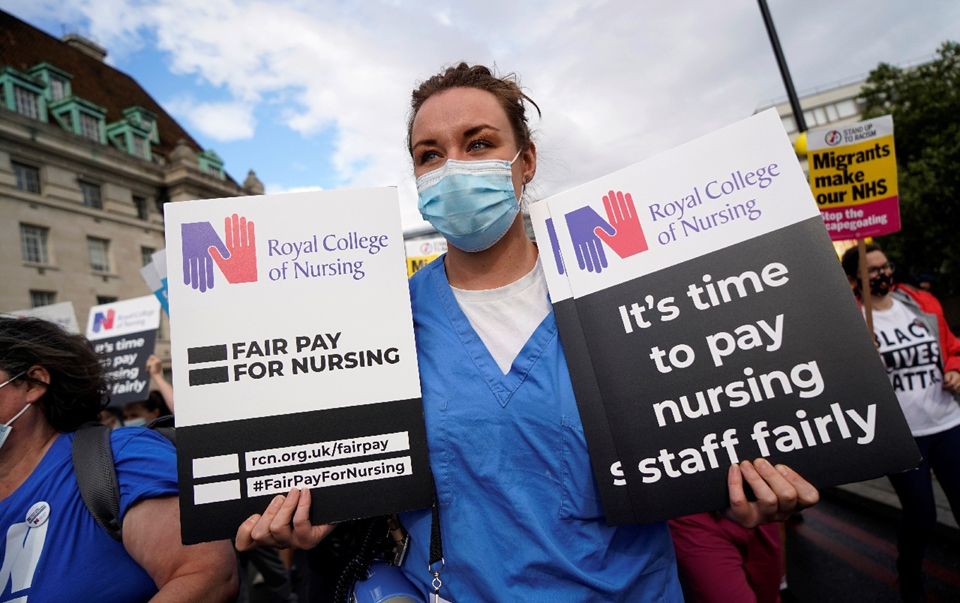
LONDON, Nov 26 (NNN-AGENCIES) — With record waiting times, staff shortages, financial black holes and now a nurses strike over pay, the UK’s state-run National Health Service is facing an unprecedented crisis.
The walk-out by nurses next month heaps fresh misery on the much-loved but creaking institution, just as winter illnesses bite and as the country faces a prolonged recession.
Matthew Taylor, head of the NHS Confederation, which represents the service in England and Wales, said demand for frontline care is “sky-rocketing” .
“Waiting time standards are deteriorating despite the sterling efforts of NHS staff — and the winter months look to be very bleak and the busiest on record,” he said recently.
A record 7.1 million people are waiting for treatment, with long delays for tests as well as routine and emergency care.
Record inflation has led to gloomy forecasts of a prolonged recession and cuts to public spending, potentially extending the crisis.
Until the early 1990s, the UK spent around 5 percent of its GDP on the NHS, which is funded through a tax on earnings of employees, employers and the self-employed.
Buoyed by a strong economy during the late 1990s and early 2000s, the Labour government at the time almost doubled spending to 9.9 percent.
But it remained around that level following the 2008 financial crash as an incoming Tory-led government battled to reign in public debt, despite an ageing population.
Compared to its nearest European neighbours, the UK was seventh highest in terms of healthcare spending as a proportion of GDP in 2019.
Germany and France both spent around 11 percent.
The UK figure shot up to 12 percent during the pandemic, when NHS workers were hailed as heroes with weekly doorstep applause, but is now falling again.
As well as denting public finances, inflation has caused a wider cost-of-living crisis that has led to large-scale industrial action across multiple sectors.
The Royal College of Nursing says that nurses’ wages have fallen sharply in real terms over recent years.
The most common grade for NHS, known as “Band 5”, accounts for about 42 percent of nurses in England and has a salary range of between £27,055 and £32,934.
Difficulty in replacing departing staff has deepened the crisis.
NHS England currently needs to fill more than 130,000 jobs, including 12,000 hospital doctors and 47,000 nurses, preventing it from making inroads into reducing the Covid treatment backlog.
A shortage of about 1,800 full-time GPs, local family doctors, has led to difficulties in booking doctors’ appointments and forced more people to seek treatment at hospital emergency departments.
Serious “failures” have been found in some maternity wards that contributed to the deaths of babies who could have survived had they had better care. — NNN-AGENCIES









